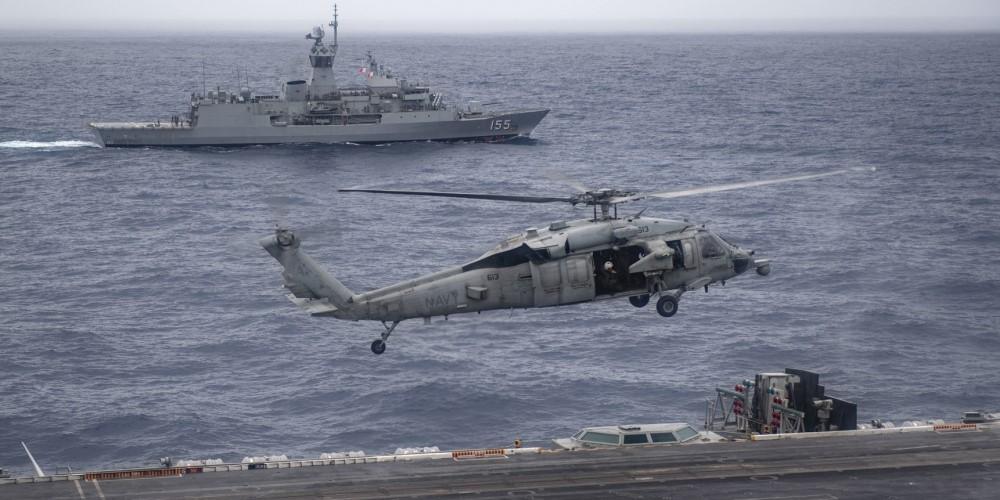INDOPACOM Increases Emphasis on Communication
The U.S. Indo-Pacific Command (INDOPACOM) is placing a greater emphasis on communication, especially with allies and partners, as it faces growing threats across the vast region. The scope of those threats and the need to confront them in a coalition approach was described by three officers from the United States and Australia on the third day of TechNet Indo-Pacific, running virtually March 1-3.
Brig. Gen. Joel Vowell, USA, deputy director, strategic planning and policy, J-50, INDOPACOM, led his keynote address by describing the importance of communication in terms of the command’s mission. “We’re in a multipolar world, and in this region the Peoples Republic of China is our main competitor,” he declared. “The PRC does not like rule of law and freedom of speech. China wants to change the game and the rules, with the rest of us losing out.”
The PRC does not like rule of law and freedom of speech. China wants to change the game and the rules, with the rest of us losing out.—Brig. Gen. Joel Vowell, USA, deputy director, strategic planning and policy, J-50 @INDOPACOM #AFCEATechNet
— Bob Ackerman (@rkackerman) March 3, 2021
Confronting the Chinese threat will require new communications technologies that can be applied among U.S. allies and partners as well. Gen. Vowell noted that the commercial sector was leading the way in the new technologies and capabilities on which the military will rely, but the defense sector is lagging in that important arena.
“We haven’t exactly caught up in the military domain,” he admitted. “We still don’t have the means to connect the joint force truly."
And this will be the key to success: The general pointed out that having allies and partners on the sidelines when conflict erupts will be a formula for loss. These new capabilities must reach across national lines to connect U.S. allies for optimum use. The ability of these friendly nations to cooperate will abate much of the advantage that China seeks to bring into play.
The need for effective coalition communications was emphasized by Brigadier Nerolie McDonald, AUA, vice director, intelligence, INDOPACOM. “We battle communications shortfalls every day,” she reported. “Poor communication among partners and allies during conflict will cost lives.”
If we don’t share in the competition environment [and in the disaster relief environment], we’re not going to learn [for combat].—Brigadier Nerolie McDonald, vice director, intelligence, @INDOPACOM #AFCEATechNet
— Bob Ackerman (@rkackerman) March 3, 2021
The brigadier noted that information sharing must take place well before the allies join forces in combat. The many disasters that have stricken the Indo-Pacific region have triggered joint humanitarian responses among allied nations, and these events have illuminated communications shortcomings in the ad-hoc coalitions. Brigadier McDonald pointed out that allied forces must share in both the competition environment and the disaster relief environment, or they will not learn the necessary lessons for combat.
Her countryman, Cdre. Luke Charles-Jones, RAN, deputy J-5 at INDOPACOM, enlarged on that sentiment. “We want to fight to win, but also win before fighting,” he declared.
We want to fight to win, but also win before fighting.—Cdre. Luke Charles-Jones, RAN, deputy J-5, @INDOPACOM #AFCEATechNet
— Bob Ackerman (@rkackerman) March 3, 2021
One challenge facing U.S. partners is the dynamic nature of U.S. communications systems. Brigadier McDonald noted that many countries adopt U.S. systems, only to be left out in the cold when the U.S. moves on from those technologies. Some countries want to continue to operate their legacy systems, and the United States then must find a way to accommodate them.
This emphasized her call for jointly developed communications systems across the Indo-Pacific region. “If we can develop a joint strike fighter together, why don’t we do the same for a mission partner environment?”




Comments